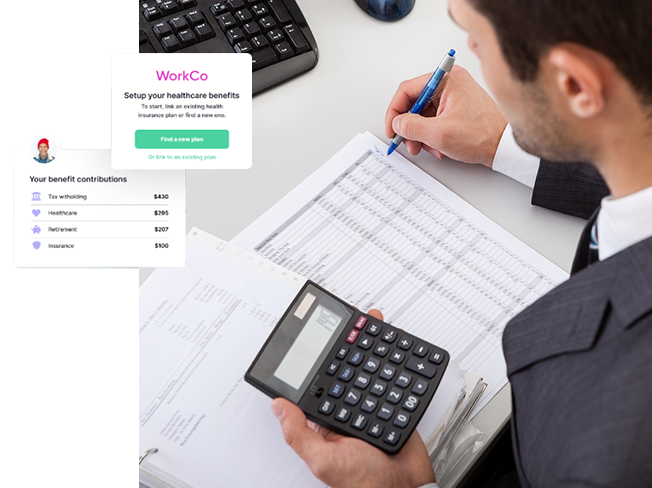
Property taxes are a significant aspect of homeownership that often perplexes renters and homeowners alike. It’s not uncommon for people to assume that tenants, as occupants of a rental property, are responsible for paying property taxes directly. This assumption may lead to confusion about who is responsible for this financial obligation. Before delving into renters pay property taxes? Let’s first understand what property taxes are.
How Do Property Taxes Work? Let’s Break it Down
Property tax is a recurring expense that homeowners and individuals who own real estate properties must pay the local government. This tax is based on the assessed value of the property and plays a critical role in funding local services such as public schools, infrastructure development, and emergency services. What sets property tax apart from other taxes is its direct link to the value of real estate, making it more transparent and understandable for taxpayers.
Understanding your property tax obligations is crucial for accurate financial planning when considering tax preparation. While professional tax services can help understand these complex taxes, it’s essential for property owners to grasp how changes in their property’s value can impact their annual tax bills. Moreover, being aware of available exemptions or deductions related to property tax can result in substantial savings and relieve some financial burden for taxpayers. By staying informed about the intricacies of property taxation, individuals can better advocate for themselves when engaging with local taxing authorities.
Landlord’s Responsibility:
When it comes to property tax preparation, the responsibility usually falls on the shoulders of landlords or property owners. They must ensure that these taxes are paid promptly and in full. This means that you don’t typically have a direct responsibility for paying property taxes as a renter.
However, it’s important to note that even though renters don’t directly pay property taxes, they may still be indirectly affected by them. Property tax expenses can impact how much landlords charge for rent. If landlords need to allocate more funds towards their property tax payments each year, it could increase rental prices.
For example, let’s say your landlord owns multiple properties, and one of them incurs higher-than-expected property taxes. To compensate for this additional expense, your landlord may increase the monthly rent for all tenants across their properties. While you’re not responsible for paying those specific property taxes, you might end up shouldering some of the cost through increased rent charges.
Ultimately, understanding who is responsible for paying property taxes helps tenants make informed decisions about their overall housing costs and budgeting considerations. By recognizing that landlords are generally liable for these expenses but can potentially pass them along through higher rents, renters can better understand this aspect of renting a home or apartment.
Worried About Tax Season?
Say goodbye to stress and let us manage your
numbers with meticulous care.
Legal Arrangements
Lease agreements play an important role in determining the responsibilities of tenants when it comes to property taxes. These agreements can vary greatly depending on the landlord and region, so both parties need to review their lease agreement thoroughly; some tenants often utilize professional tax services before signing to understand the agreement clearly.
In some cases, lease agreements may explicitly state that tenants are responsible for paying a portion or even all of the property tax. This typically occurs in commercial leases or long-term residential leases where tenants have more control over the property. However, to understand this arrangement, many affordable tax services are available to help you walk through standard residential leases.
Renters need to understand this distinction because it affects their financial obligations and expectations as tenants. By carefully reviewing lease agreements and discussing any concerns with professional tax services before signing, tenants can clarify whether they will be contributing towards property taxes or if their landlord will absorb those costs.
Assessing Market Rates
When assessing market rates and understanding the financial responsibilities of a renter, the topic of property taxes often raises questions. Contrary to popular belief, renters do indirectly contribute towards property taxes through their monthly rental payments. While landlords typically bear the direct burden of property taxes, they factor these expenses into the overall cost of renting out their properties, ultimately passing on a portion of this cost to tenants in the form of higher rent.
It’s crucial for renters to comprehend how property taxes influence market rates and realize that they indirectly impact their housing expenses. Understanding this connection can empower renters to make more informed decisions when choosing a living place and negotiating rental terms. By knowing these financial complexities, individuals can take proactive steps in managing their housing budget effectively and seeking professional tax services if necessary, potentially leading to more efficient tax preparation and better financial planning strategies.
It’s important to note that this doesn’t mean all rental properties have high rents solely because of property taxes. Landlords consider multiple factors when setting prices and aim to ensure they can cover all costs associated with owning and maintaining the property while making a profit. Nevertheless, understanding how indirect costs like property tax payments can affect market rates provides valuable insight for tenants and homeowners alike.
Tailored Solutions to
Your Business
Needs
We believe that each business is unique, which is
why we tailor our bookkeeping services to meet your
specific needs. From companies to established businesses,
we have your back!
Contact-Us
Verify The Property Taxes Due
It’s easy to overlook property taxes or assume they’ve been taken care of, but neglecting this responsibility can lead to unwanted consequences. That’s why it’s vital to double-check the property taxes due and ensure everything is in order. Professional tax services can provide peace of mind and a thorough review of your obligations, helping you avoid potential penalties or legal issues.
Tax preparation is an ongoing process that requires attention to detail, especially when it comes to property taxes. By carefully examining the current status of your property tax payments, you can avoid any surprises and make necessary arrangements if there are any outstanding dues. Professional tax services typically have expertise in this area and can offer valuable guidance on managing your property taxes effectively.
Taking a proactive approach pays off in the long run when managing financial responsibilities like property taxes. By staying on top of your obligations and seeking expert assistance, you can ensure a smooth, stress-free experience with your property taxes.
Lighten Your Load with
Affordable BookKeeping
Packages
We offer competitive packages that won’t break the bank,
and up-front pricing so you know exactly what you’re getting
as your return on investment.

Transparency between Tenants and Landlords
It is essential for tenants and landlords to establish clear lines of communication when it comes to property tax preparation. While renters do not directly pay property taxes, any changes in local rates can impact rental agreements or leases. This is why both parties must involve professional tax services, stay informed, and discuss how such changes might affect the cost of rent.
Renters should take the initiative to ask their landlords about any potential rent increases resulting from property tax rate changes. By having an open dialogue, tenants can better understand how these costs may be distributed and whether they will be responsible for bearing any additional financial burden.
On the other hand, landlords should proactively inform their tenants about any changes in property tax rates that could lead to an increase in rent. Keeping tenants informed about these matters demonstrates transparency and helps maintain positive landlord-tenant relationships.
By encouraging communication between tenants and landlords regarding property taxes, both parties can foster a sense of trust while ensuring everyone is aware of potential rental cost adjustments resulting from changing tax obligations. It is through open discussions that agreements that are fair and mutually beneficial for all involved can be reached.
Wrapping up
So, to sum it up, renters do not directly pay property taxes. It’s the homeowners who are obliged to pay the property taxes. Renters may indirectly contribute to these payments through their monthly rental payments. By shedding light on the responsibilities of both parties and contacting reliable tax services like Books and Balances Inc., individuals can understand the rental market with greater confidence.
So whether you’re currently renting or considering becoming a tenant in the future, take comfort in knowing that you are not directly responsible for footing the bill when it comes to property taxes. Instead, focus on finding a reliable and trustworthy landlord who fulfills their obligations responsibly while providing you with comfortable and affordable accommodations. Contact us for reliable tax consultation services.



